
ARCOS Symposium 2024
Go to eventabout ARCOS Symposium 2024
The Australian Research Data Commons (ARDC) recently held the first of its 2024 Leadership forums, focusing on the theme of Data and Platforms to Meet Australia’s Future Research Needs. The forum brought together key stakeholders in the research sector to celebrate the ARDC’s National Data Assets and Platforms initiatives and showcase the valuable data assets and platforms now available to researchers. The forum was held on Ngunnawal and Ngambri land at the Australian Academy of Science’s Shine Dome on 29 February 2024.
The ARDC Leadership Series gives leaders and decision makers a forum to discuss data challenges impacting researchers in Australia. Australian researchers need access to significant national-scale data assets to tackle the grand challenges we are facing now and into the future. Not only do researchers need high-quality data assets, but they also need the platforms to bring together, analyse and share this data.
The forum highlighted 2 ARDC initiatives. The first is the ARDC’s National Data Assets program, which co-invested in the development of 25 national-scale research data assets to support reliable high-quality research. The second is ARDC’s Platforms Program, which co-invested in 26 platform infrastructures to increase the number of researchers with access to platforms, both the absolute number and the diversity of disciplines.
Close to 50 platforms and national datasets were completed with ARDC co-investment from these 2 initiatives in domains ranging from blood transfusions to ecological modelling to coronial findings. View a showcase of the projects in this presentation [pdf].
The forum began with introductions to the ARDC’s National Data Assets and Platforms programs from:
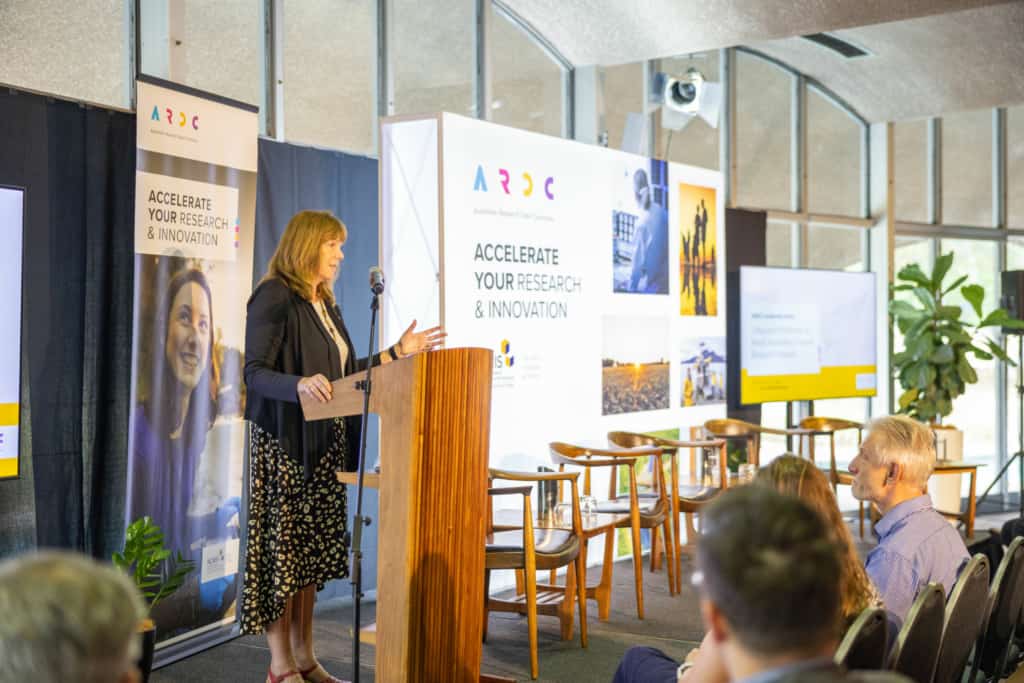
We then welcomed the panel members, who were part of projects supported by the ARDC through the Platforms and National Data Assets initiatives. To begin, each panel member gave an introduction to their ARDC-supported project.
“ERICA is the first of its type internationally that sets up a secure research environment, sometimes called a trusted research environment, within a public cloud computing infrastructure – Amazon Web Services (AWS). ERICA was an existing platform, and through the platforms project we wanted to grow and replicate the community of ERICA users.
“There are now 5 institutions running ERICA. Interestingly, we thought that universities were going to be the people who wanted ERICA instances, but as it turned out, it’s government departments who have been the major end users. There are 344 research projects that have used the various ERICA instances during the period of the ARDC co-investment.”
Read the ARDC case study about the impact of ERICA on health research and practice.
“The heart of ecoacoustics is trying to understand nature through sound. We can put our recorders across the environment so we can continuously record birds, frogs and potentially other species as well. From that, we understand what’s going on. That’s really important because we don’t have baseline data, which is surprising for our northern hemisphere ecologist colleagues. We don’t even know where koalas are in this country, despite the great amount of investment that goes into research.
“Open Ecoacoustics is a tool to measure biodiversity and local biodiversity across Australia. Through the ARDC, we’ve been able to lift our platform so that it now supports hundreds of projects and thousands of users to deal with ecoacoustic data. Our database, supported by the platform, stores over a petabyte of data. We can now analyse the data pretty well thanks to the new deep learning systems.
“It supports projects across Australia. For example, it supports projects in the NESP Landscape Hub, where one of the projects is looking at threatened species on Christmas Island, and there are projects looking at seabirds on the Great Barrier Reef. “
“The Australian Digital Observatory was set up to respond to a need across humanities and social science research to observe what Australians were doing in their digital lifestyles on the web. The largest product was the Australian Twittersphere, which now stands at something like 2 billion tweets across multiple years in 3 different amalgamated collections.
“We’ve also shepherded a range of open source tools to access those collections – to process and filter them. We also provide consultation services – research software engineers and data scientists – because perhaps the unique thing about humanities and social science research is the need to cater for different levels of familiarity with technology and methods relating to digital data.
“We’re now in the post API era, so we find ourselves now having to engineer new ways to kind of harvest activities of people on a much broader set of smaller platforms, which is a great challenge. We’re delighted to be working with the ARDC to bring some of those platforms to life.”
Natasha discussed the implementation of the National Data Assets program, which she managed in her role as Associate Director for Data and Services. Natasha stepped into her role in the early days of the COVID-19 pandemic, at a time of heightened interest in health data, with data visualised everyday on our news channels at that time.
Natasha highlighted the role of the ARDC in adding value to National Data Assets projects by reimagining data for future utility and expertise in ensuring data is findable, accessible, interoperable, and reusable (FAIR).
Challenges faced during the implementation of the program included issues with persistent identifiers, cross-jurisdictional data sharing, managing sensitive data, demonstrating impact, and ensuring sustainability beyond the project duration. The ARDC made efforts to address these challenges through initiatives to develop sustainable training materials, partnerships with industry, and the creation of Thematic Research Data Commons to elevate data assets to a national scale.
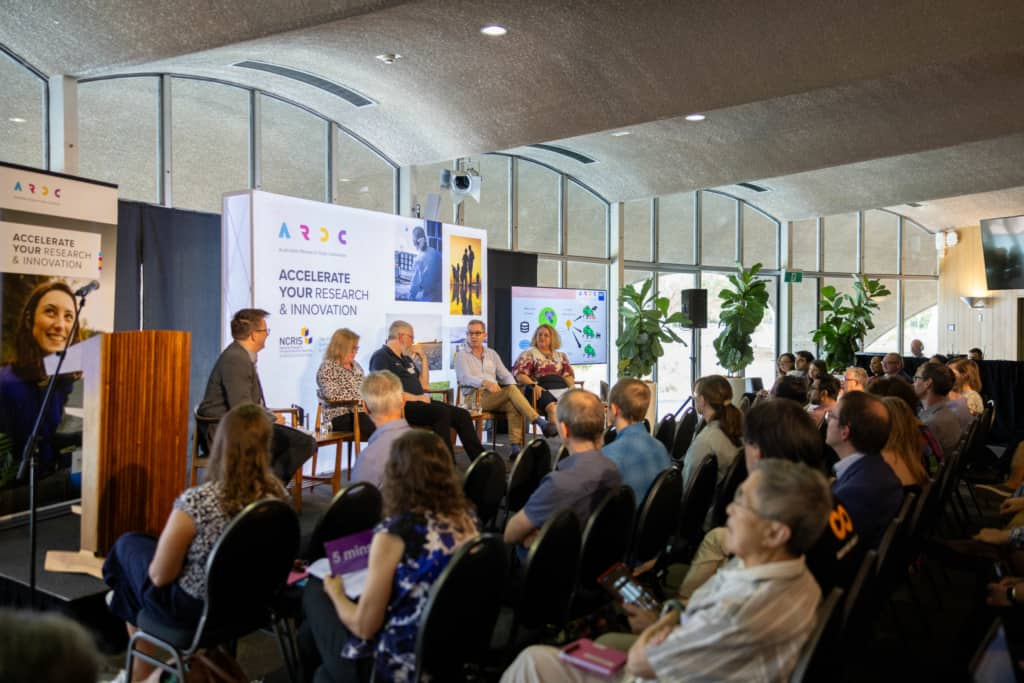
A panel discussion was then expertly moderated by Ryan Winn, CEO of the Australian Council of Learned Academies (ACOLA). Topics addressed during the discussion included challenges in data management, sustainability of research projects, and the importance of building communities around data platforms.
Panellists highlighted the significance of partnerships and collaboration in developing national data assets and emphasised the need for ongoing stewardship and investment in research infrastructure.
The discussion also touched on the role of data platforms in addressing emerging themes such as misinformation, election interference, and biodiversity measurement, showcasing the versatility of the platforms in addressing diverse research needs.
Panellists shared insights into technical aspects such as the use of embeddings for analysing large datasets and the potential of generative AI in querying and interpreting research outcomes, indicating the evolving nature of data analysis techniques in research.
To conclude the event, Ryan asked the panel for their challenge/provocation to the leadership sector.
Matthew Bettinson: We still need to address coming up with solutions for the sustainability of increasingly sophisticated datasets that may have AI fronting them, but it means there’s more technical complexity built into the platforms.”
Louisa Jorm: “For the People Research Data Commons to consider electronic medical record research and all the AI possibilities there are because that is where the research cutting-edge is now, not in structured data”
Paul Roe: “We’re talking about platforms and data, but really it’s about people. The important thing is about building communities. And I think that’s something we’ve done well in the ecoacoustics space. I’m just echoing what Professor Hugh Possingham said at a recent Machine Observation ARDC Workshop [for the ARDC’s Planet Research Data Commons] that we are a small country and we absolutely need to collaborate. We’ve got to collaborate.”
Natasha Simons: “I’d like to see us build on the successes that we’ve had in this program and on the partnerships and the collaborations that have been built. The things that work really well in the program, particularly around coming together to problem solve. It would be wonderful to see that continued and applied for the ARDC’s Thematic Research data Commons, but also beyond that, the benefits of this program can have ripples across the whole sector.”
The ARDC is now building on the experiences in these programs to construct Thematic Research Data Commons around a number of key, strategic themes, bringing together data assets, tools, platforms, compute, expertise and skills to meet Australia’s future research needs.
We were pleased to welcome many representatives from ARDC-supported projects and partners in the audience. Here’s what they said about working with the ARDC.
Jessica Holliday, Project Manager for the Human Genomes Platform Project, an ARDC Platforms project.
“It was a great opportunity to bring partners together under a project to foster a shared vision and goals. It was a great springboard for us. We just received significant NCRIS funding to continue that work and propel it forward.”
Associate Professor Bernie Pope leads the Human Genome Informatics team at Australian BioCommons.
“All the partners we worked with on the Human Genomes Platform Project are continuing to work with us and more. An important problem we’re addressing is ‘how can we give a home to important datasets for the long-term?’”
Dr Ryan Sullivan is the head of the Australian Imaging Service, an ARDC Platforms project.
“It gave us that foundation to move from multiple university initiatives to a coordinated national initiative, which we then could use to apply for MRFF grants.”
In the last 6 months, the Australian Imaging Service (AIS) has received 2 significant biomedical research infrastructure grants:
Additionally, AIS was also involved in the MRFF Brain Cancer Research Infrastructure grant led by Brain Cancer Biobanking Australia.
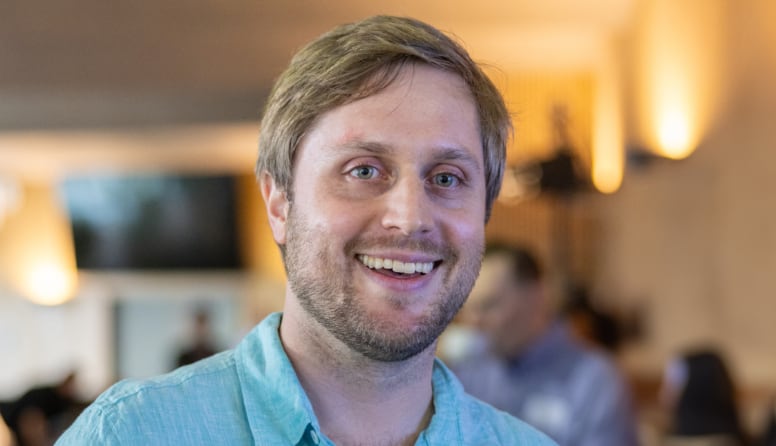
Dr Kamran Najeebullah, CSIRO, was the project leader for Mobility Australia, an ARDC National Data Assets project.
“Australia has a lot of human mobility data, but for epidemiology, those datasets were not very useful. Through this project we’ve created a human mobility profile for Australia. We created datasets for region to region flow of people. So if you’re living in one region, how likely is it that you would come into contact with a person from another region. This is an important planning resource.
“CSIRO partnered with AURIN, ARDC, University of Melbourne and QUT to bring the team together and the dataset is now hosted on AURIN.”
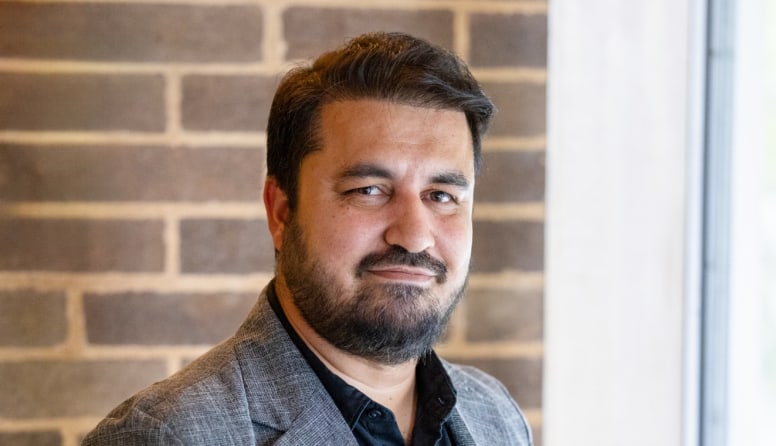
Learn more about the ARDC’s Thematic Research Data Commons
View more photos from the Leadership Forum below. Images: Photox / ARDC
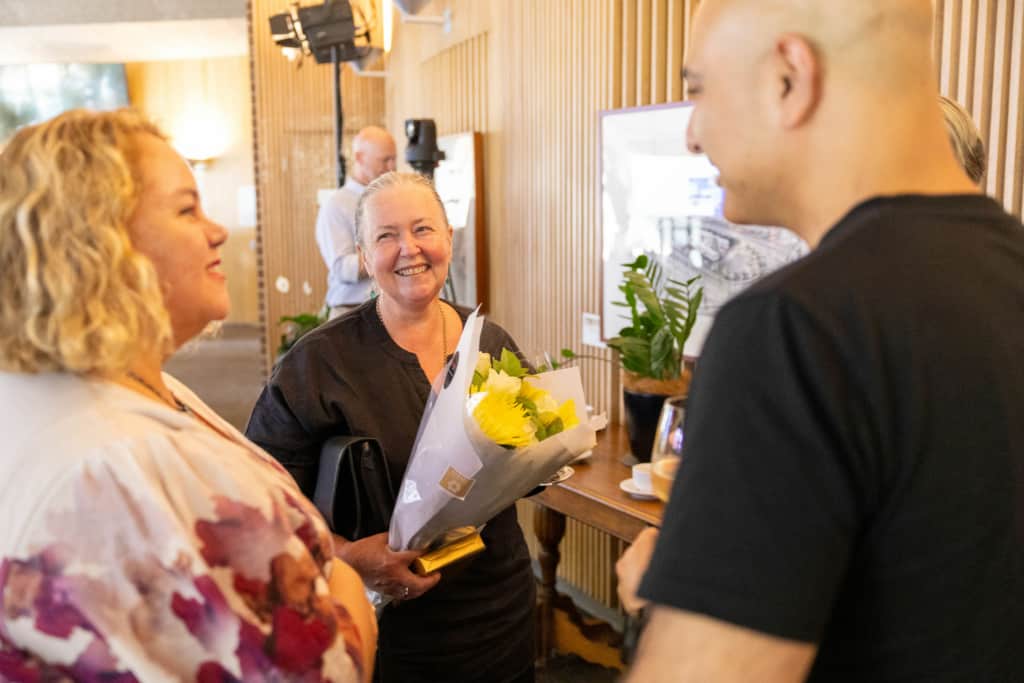
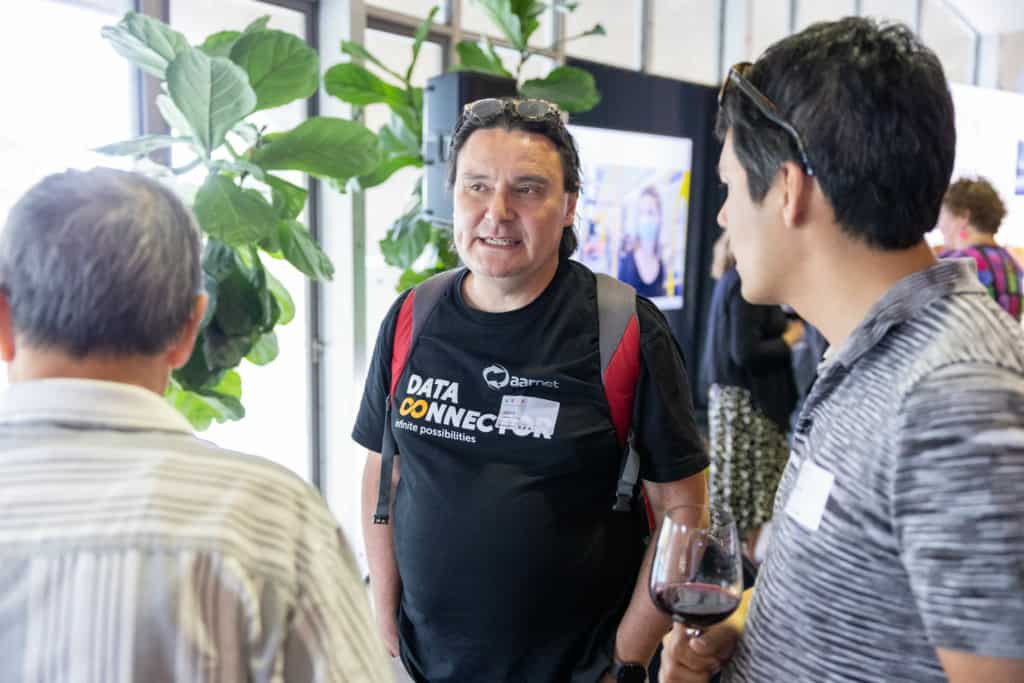
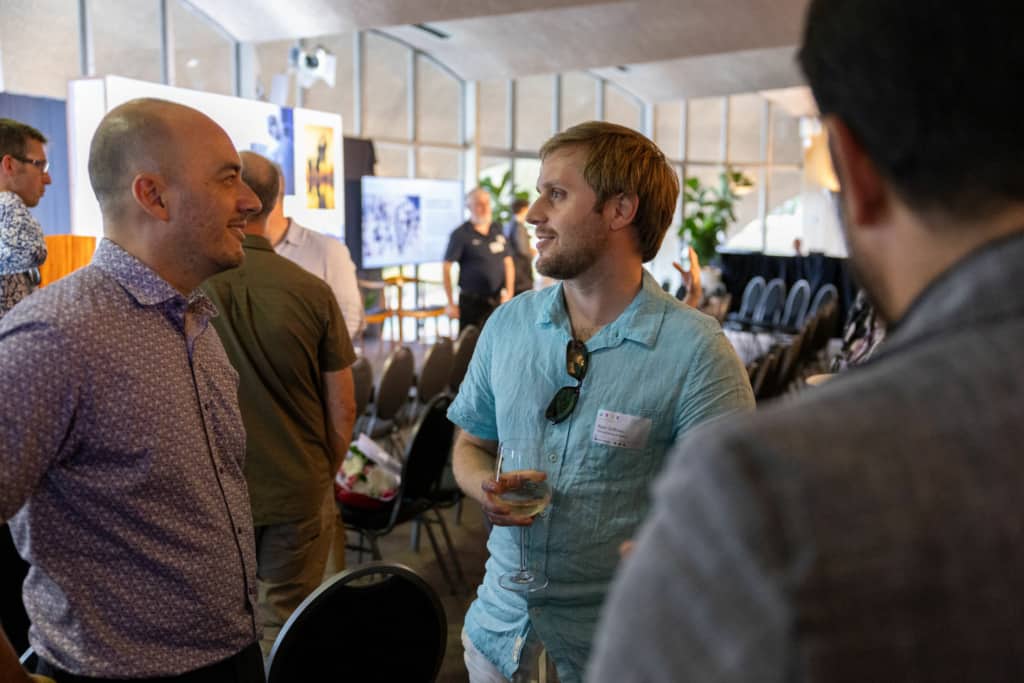
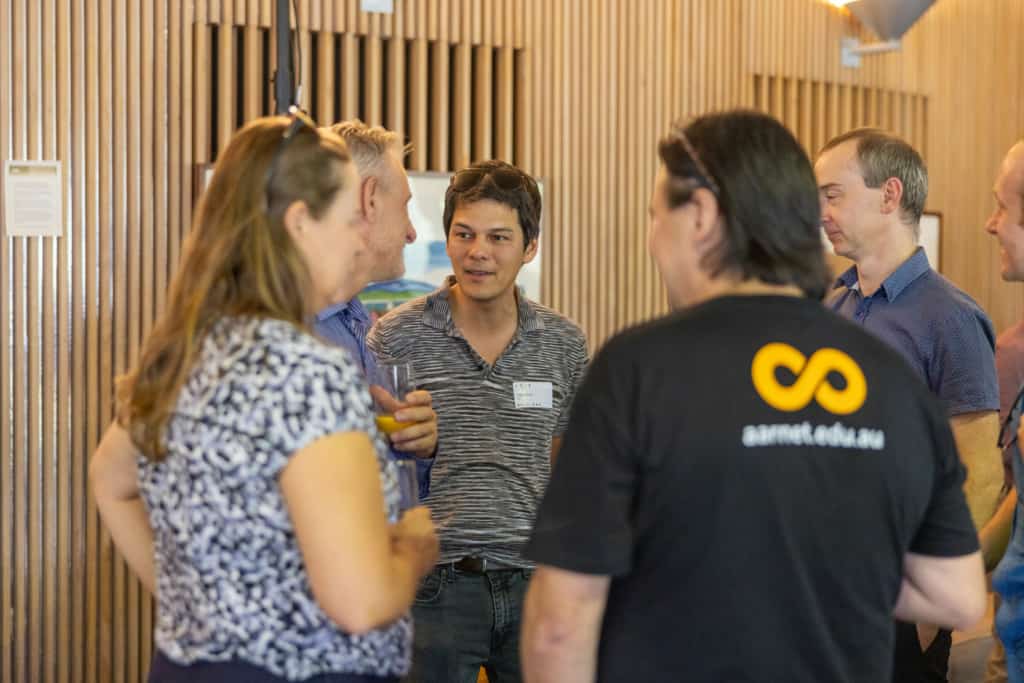
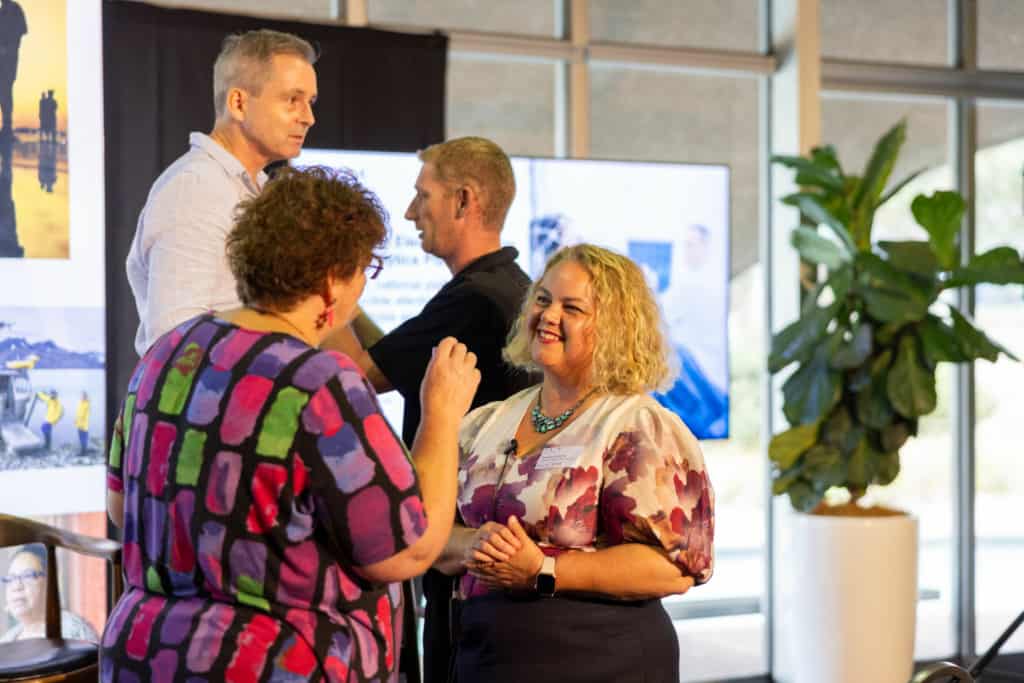
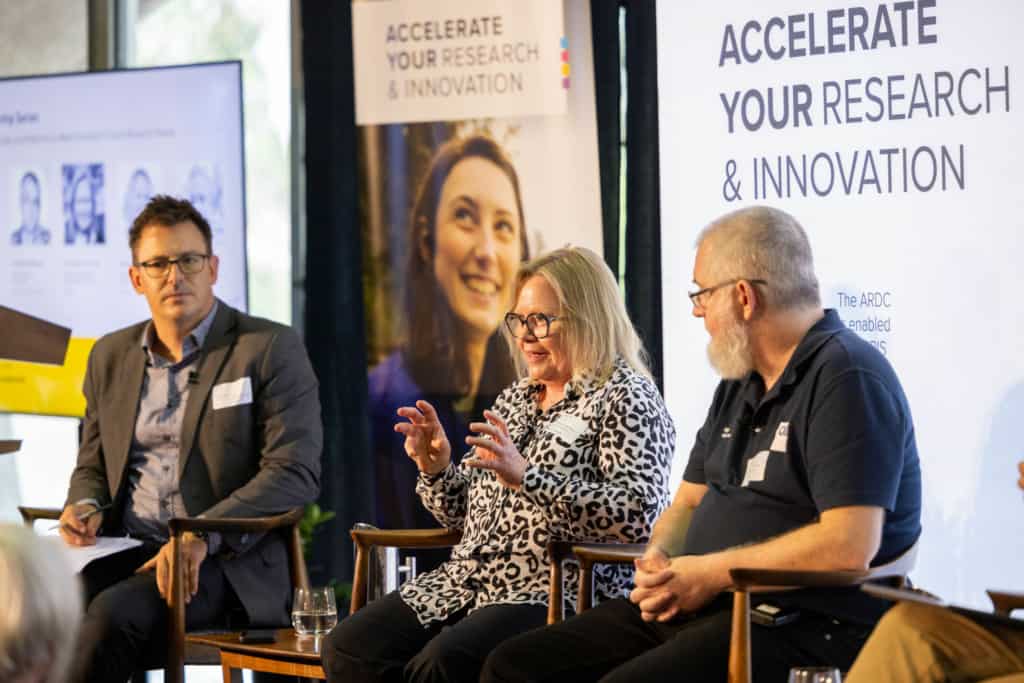
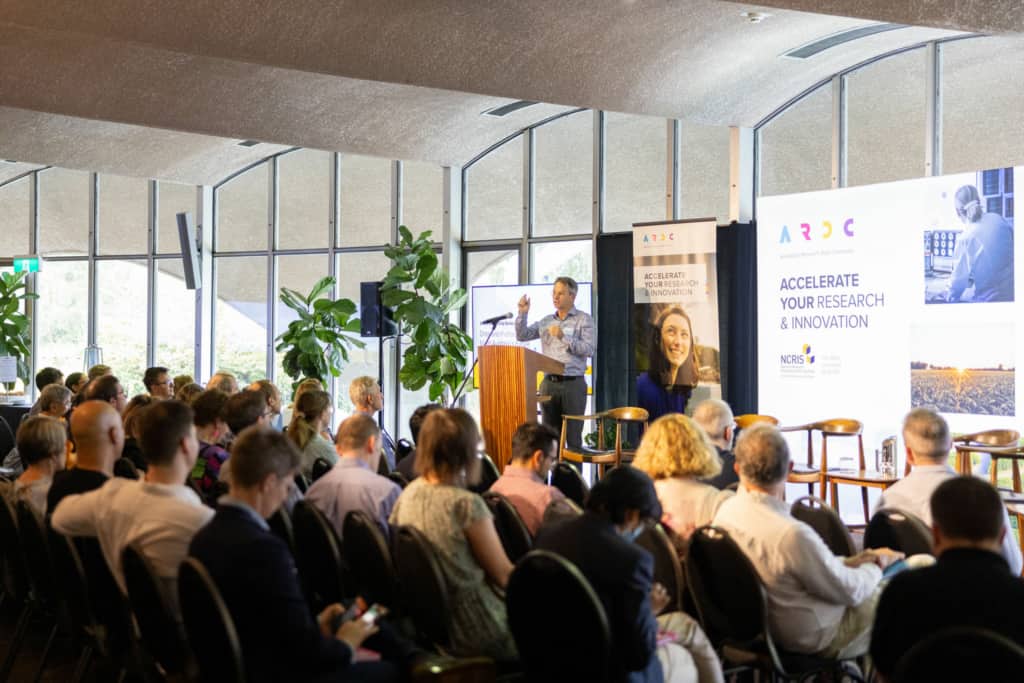
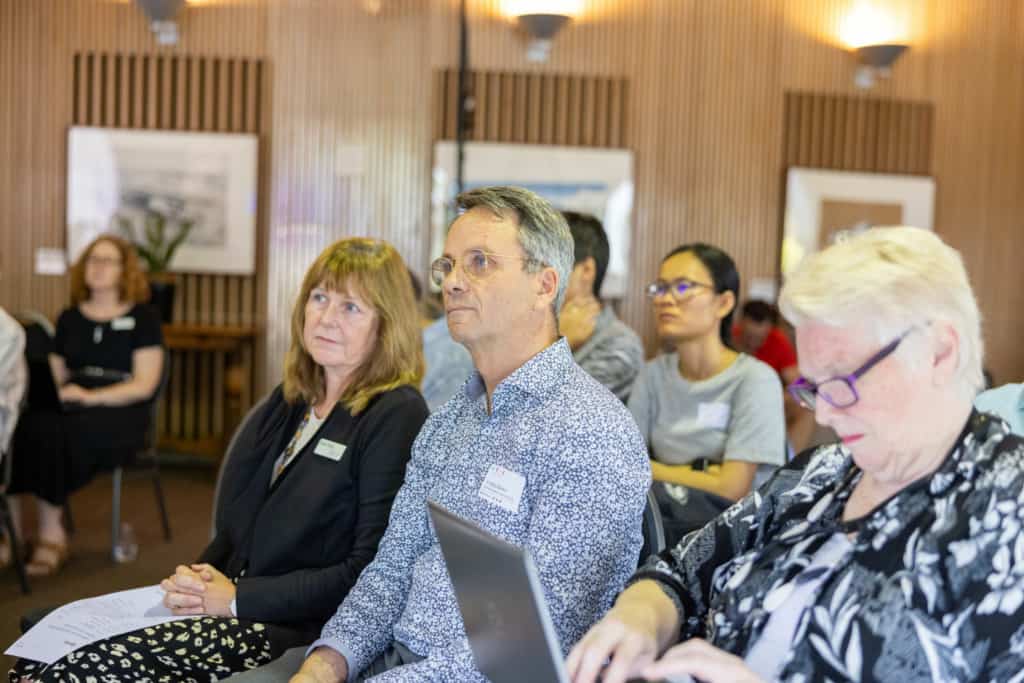
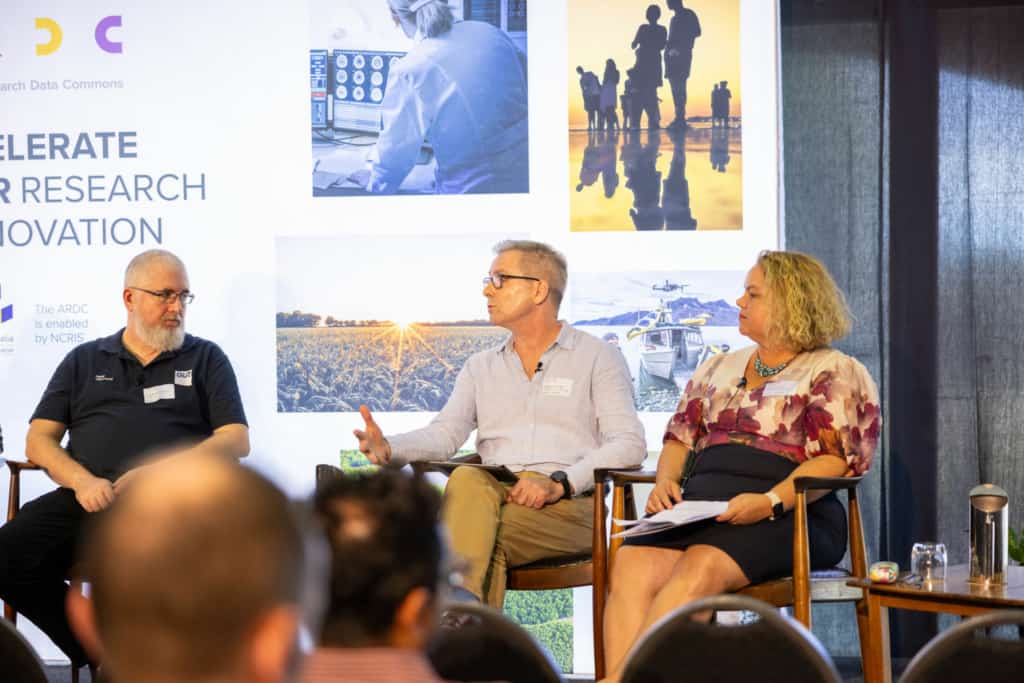
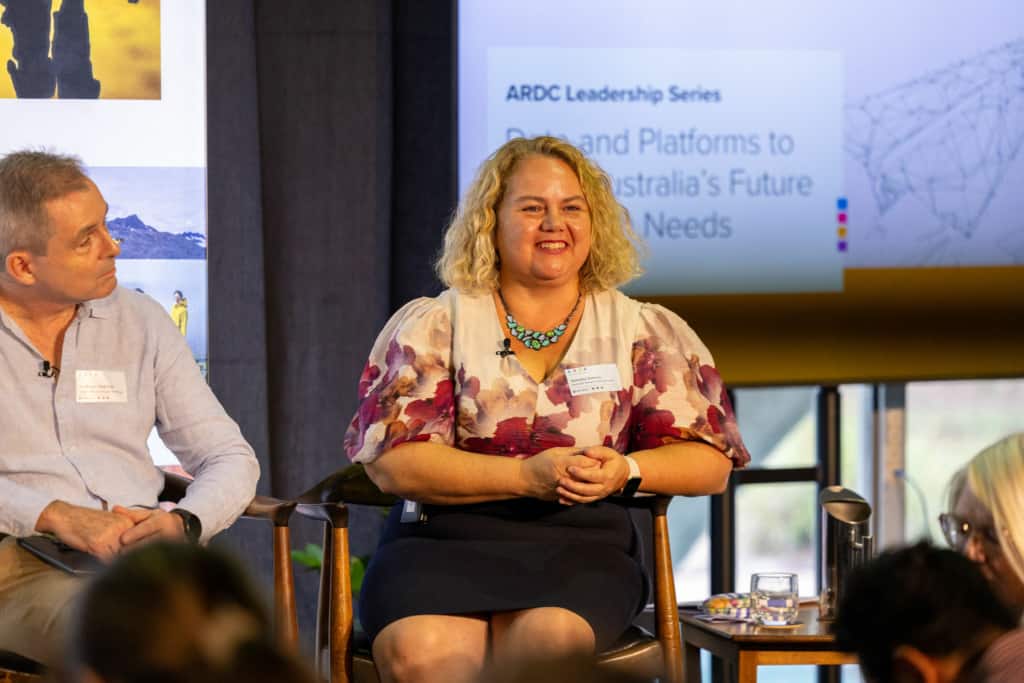
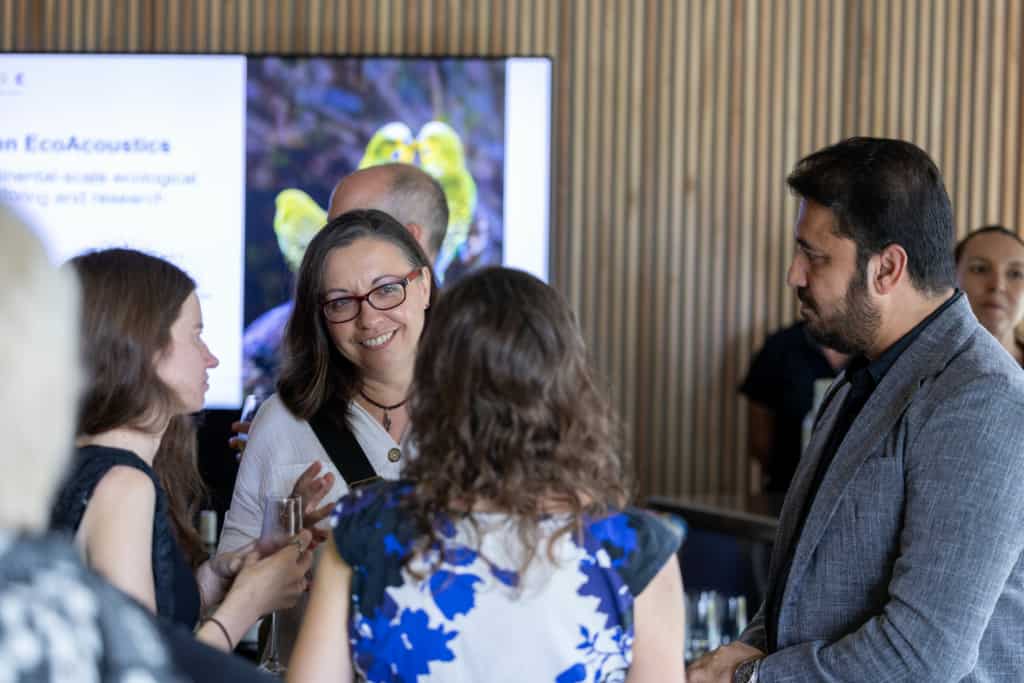
Learn about future Leadership Forums and other ARDC events by subscribing to the ARDC Connect Newsletter.
The ARDC is funded through the National Collaborative Research Infrastructure Strategy (NCRIS) to support national digital research infrastructure for Australian researchers.